A variety of materials go down your drains every day. This mixture of materials, such as soap and food particles, can cause clogs. Clogged drains can impede water flow, leading to problems like corrosion, flooding, and sewage backups. There are several main causes as to why your drains may become clogged, and we are here to help you understand them.
AccuTemp understands the potential severity of a clogged drain; that’s why it’s important to understand why they happen, what you can do to respond, and what resources are available when they strike.
What Are the Main Causes of Drain Blockages?
Some causes for drain blockages you’re probably familiar with include hair blockages and food debris. Frankly, these are odnly the tip of the iceberg. Here are the eight common causes of a clogged drain:
1. Hair Blockages
Hair is often to blame for a clogged drain. This is especially the case in bathrooms and laundry drains. Hair can knot, accumulate, and attach soap and grease, causing an even bigger clog.
Drain guards are a great way to prevent hair clogs. Simply install a drain guard in your sink or shower to catch hair from slipping down the drain. Remove any hair you see around your bathroom sink or shower and clean hairbrushes over a trash can.
2. Soap Buildup
Soap remnants are known for collecting over time in laundry and bathroom drains, thus causing blockages. These types of blockages can reduce the diameter of your home’s pipes, hindering water drainage and leading to backups. Like hair, soap can combine with other materials for a difficult-to-deal-with clog.
3. Tree Roots Intrusion
One other major cause of a clogged drain is the intrusion of tree roots. If your pipes have cracks or leaks, tree roots are drawn to the moisture and are more likely to invade. Older homes are highly susceptible to blocked pipes due to tree root intrusion.
Live near or in a heavily wooded area? Schedule an inspection every couple of years to keep an eye out for intrusion.
Read More: What is the Correct Height for a Toilet Flange?
4. Dirt and Debris
Washing off various articles free of dirt and debris in your sink or shower can lead to buildup and blockages. Dirt and debris can also combine with other materials to make for a dirtier situation. Remove dirt and debris from your clothes and shoes outside instead of the sink or shower to help prevent clogging.
5. Grease and Oil
Grease and oil are known to cause some of the most severe cases of clogged pipes and professional assistance from a licensed plumber is usually recommended. These substances can harden inside the drain and cause a blockage. Avoid putting these substances down your kitchen sink and instead, soak them up with a paper towel and dispose of them in the trash.
6. Food Debris
Food is another common cause of a clogged drain, even with garbage disposals. Keep food debris away from your drains, including the garbage disposal. A great solution is to set up a compost at your home to properly dispose of food waste.
7. Scale in Water Lines
Scale deposits in water lines are usually the result of dissolved calcium and magnesium and sometimes other metallic elements that are left behind as water flows.
These elements have properties that react to temperature and constant wet-dry conditions, which can cause the smallest amount of scale to grow exponentially. Drainage clogs in water lines are also known for affecting water-based appliances such as clothes and dishwashers.
8. Pipe Disintegration
Pipe disintegration can lead to much more than a clogged drain, pipes will often sag and corrode. Pipe disintegration is when the joints of the pipe come apart or the pipes are weakening altogether. This occurrence is common with older homes and during winter’s freeze-thaw process.

Top Methods for Cleaning Drains
Now that we’ve covered the main causes, let’s cover some of the best and most effective drain-cleaning methods.
Boiling Water
Best for addressing minor clogs in pipes caused by grease or soap remnants, boiling water is an effective and straightforward method to restore circulation. Boiling water breaks down and flushes away the substances, restoring optimal drainage.
Be careful during the process as boiling water is dangerous. Boiling water should be avoided in PVC piping because the high temperature can melt them.
Read More: 10 Obvious Signs of Bad Ductwork in Your House
Baking Soda, Vinegar, and Water
Another common do-it-yourself (DIY) route for fixing clogged drains is using baking soda, vinegar, and water. Pour a pot of boiling water down the drain followed by one cup of baking soda. Let it sit for one minute and then pour a mixture of one cup of vinegar and one cup of hot water down the drain.
The ensuing chemical reaction can help break down debris and clear minor blockages. Make sure to flush the drain with hot water once you are finished. While effective, this method usually isn’t strong enough for bigger and stronger blockages.
Plunger
Or, choose the classic route. Plungers have often been the go-to solution for clogged drains. Place the plunger over the drain, seal it tight, and pump it up and down with some strength. This creates a suction and pressure that can dislodge and push debris through the pipe. Plungers are another solution for minor clogs, they are most likely not powerful enough for more severe and deep blockages.
Augers and Drain Snakes
Augers and drain snakes are the next step up. These devices are meant to reach deep into pipes and physically break up to dislodge blockages. For minor clogs, use a manual auger and when clogs are more difficult, use a drain snake. Follow manufacturer instructions to avoid causing damage to the pipes.
Hydro Jetting
A powerful method used by professionals, hydro jetting is a technique that utilizes high-pressure water to clear away materials in your pipes. This method requires special equipment and expertise, so it’s better to leave it to the professionals.

Professional Drain Cleaning and Hydro Jetting Services in Louisiana
Have a clogged drain in Louisiana? Contact us today for our professional drain cleaning or hydro jetting services to eliminate that pesky blockage. Need help with a slab leak repair or other plumbing issues? Our team of qualified plumbers offer reputable drain repair and plumbing options for homeowners in areas such as Baton Rouge, Metairie, Kenner, Marrero, and New Orleans. The team at our plumbing company is your resource for dealing with blockages in your drains. Give our technicians a call at (225) 238-8495 to receive support.













